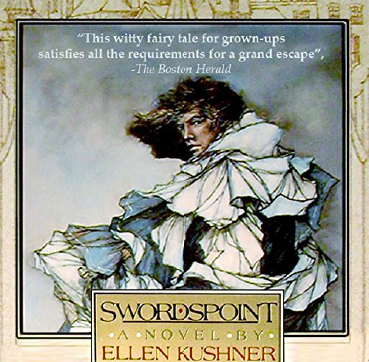Divine Comedy - Inspired Play Elevated by Stellar Cast in Audiobook
Excerpts from the review…
“We are swiftly dehumanizing the Race. Like wildebeests, they race headlong into discarnate adventure and the so-called wonders of AI. They long, like Eve, to free themselves from their old, hardwired brains. … Humans have become lab rats of their own making. In their quest to cast off the eye of Deity and attain self-mastery, they’ve built massive platforms powered by algorithms. … The Race is just now waking up to the fact that AI and algorithms, fueled by data, take on a life of their own. Humans are weak—no match for the machines they’ve made. What’s been set in motion cannot be undone. The same with Eve, it was, when she pressed her teeth through the apple skin.”
These words, part of a masterfully choreographed monologue spoken by Lucifer upon the charred plains and pinnacles of Hell, are but one of the many highlights of the stellar performances packed into SueMedia Production’s audiobook adaptation of Presence, the Play by William E. Jefferson, the latest in Jefferson’s series of novels set on (or in this case, somewhere beyond) the Isle of Estillyen.
STELLAR PERFORMANCES
The audiobook, directed by the highly inventive Sue Zizza, features a full cast of voice actors, many of them veterans in the field. Nancy Wu takes the lead as the book’s narrator, a reassuring, placid backdrop to the action unfolding across the soundstage. Gary Furlong captures well the essence of Script, leveraging his admirable range in handling the protagonist’s emotional rollercoaster from playful ingenue to self-doubting hero to traumatized witness. Doug Shapiro’s Mock is a wonder to hear, and amid his trills and squawks and babbling bits of garbled words, a character emerges that’s as sweet as it is intelligent. This is no small feat.
But perhaps the most impressive performance belongs to Simon Jones (Downton Abbey, Hitchhiker’s Guide to the Galaxy). His Lucifer is gleefully evil, erudite and commanding. Zizza’s sound direction really shines here, as she weaves creative voice editing and processing with an accompanying soundscape that makes Lucifer’s soliloquies especially terrifying and disorienting.
INTELLECTUAL AND EMOTIONAL DEPTH
I recently had the opportunity to ask Jones about his role in the project, and what he thought of Jefferson’s depiction of Lucifer. “Lucifer has a chip on his shoulder because he believes he has been wronged. That being cast out of heaven is an injustice,” Jones explains. “He’s convinced himself that he did nothing wrong. He’s quite bitter. He expresses this through his manipulation, or his intended manipulation, of social media. I mean, it feels as if somebody has been controlling social media, and it might as well be Lucifer. It certainly doesn’t seem to be on the side of the angels.”
Indeed, leveraging the discarnate displacement of our identities into social media profiles is only the beginning of Lucifer’s far-reaching plot.




